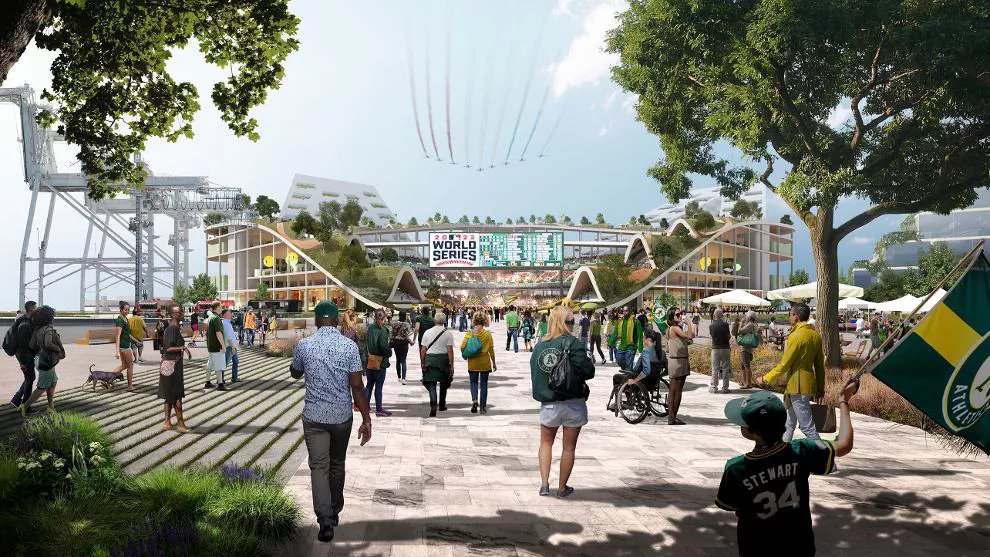Maritime Industry Pushes Back on Oakland Ballpark Plan
The Pacific Merchant Shipping Association and other maritime stakeholders are speaking out against the Oakand A's planned baseball stadium complex on the Oakland waterfront. The Port of Oakland is the fifth-busiest container port in the U.S., and the non-industrial use of waterfront land will create difficulties for maritime operators, according to the PMSA and its allies.
In November, the A's released a plan to build a 34,000-seat stadium on Howard Terminal, a site in Oakland's Inner Harbor which is currently used for container storage. The new complex would include affordable housing, offices, restaurants, retail and commercial space and parks, which would help to bring in more daytime uses.

Courtesy Oakland Athletics
However, Oakland's maritime industy is concerned that the development would have negative effects on the port. Increased traffic could create difficulties for truckers entering and leaving other Port of Oakland terminals. Bright lights from the stadium could interfere with nighttime marine navigation, according to pilots.
The Marine Engineers Beneficial Association (MEBA) is also concerned that Oakland would permanently lose part of its maritime industrial base. "You never get to rebuild a marine terminal," said Adam Vokac, executive vice president for MEBA, speaking to local TV. "Once you pave it over and put a stadium on it, you'll never get that land back for maritime use ever." MEBA represents American mariners, and Howard Terminal was used by Matson for American container ship operations until 2014.
Beyond maritime conflicts, the new ballpark plan faces site-related headwinds. The location is on the other side of two train tracks and one highway from the rest of Oakland, and the project's backers have proposed to build a gondola to carry fans over both to reach the stadium - adding complexity and regulatory hurdles. The freeway itself is already congested at rush hour, and fans would likely bring more traffic to the area, critics say. In addition, the terminal site has a long legacy of industrial uses, and its soil and groundwater are known to contain hazardous toxins which would require remediation.
Imagine soaring through the air to get to Opening Day 2023 at the Howard Terminal ballpark. ????https://t.co/mzCUVysa6r pic.twitter.com/B3cdwFjKG3
— Oakland Athletics (@Athletics) January 26, 2019

that matters most
Get the latest maritime news delivered to your inbox daily.
It is also directly adjacent to a Schnitzer Steel metal scrap plant, which has an active car-crushing operation. A Schnitzer spokesperson told the Mercury News that a ballpark and housing complex would “not compatible with the industrial and maritime nature of Oakland’s working waterfront.”
Given these challenges, the plan's critics say that it is not practical. Andy Dolich, a former Oakland A's executive, described the proposal as "fantasy" in an op-ed in December, and he predicted that it would never be built.
